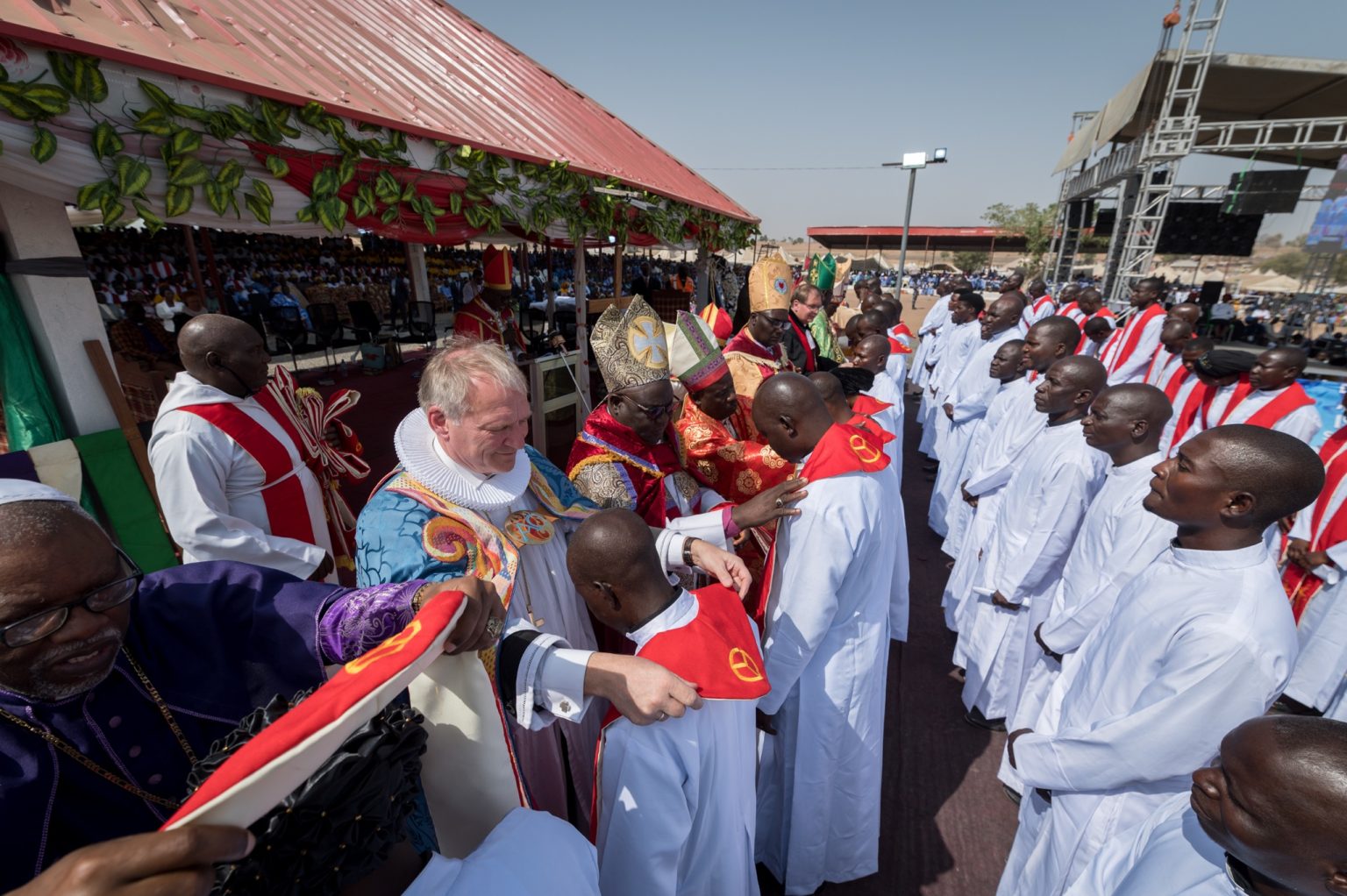The LCCN, founded in 1913 with Education as one of the church’s core pillars already from the outset, is making strides in developing both its theological education and more widely, through a project well underway for a Lutheran University in Numan, Adamawa State.
“It is very clear that the seminary is going to be an integral part of the university. This synergy will help us to ensure that there is not a gap when pastors have just been trained in theology, and then they are limited in their understanding of society,” the Archbishop says.
LWF President Bishop Henrik Stubkjær of the Evangelical Lutheran Church in Denmark, who during the week visited both the Brønnen Seminary of the LCCN and the site for the upcoming university, took part in the ordination service, sharing a message with the 57 new pastors.
“You are needed in a world that is currently filled with uncertainty both politically, religiously and in view of the climate. You are needed as a bearer of hope. We need you as preachers of the good news of the Gospel,” Stubkjær said.
“Today Jesus has said to each one of you: “Follow me”! And your answer should be to take on a leadership role in the churches. But that doesn’t mean as pastors that you are alone. You are called upon, and you are sent on the mandate of our Lord and Saviour Jesus Christ,” the LWF President added.
Praying together ‘shows how much we have in common’
The week-long celebration in Demsa has seen the presence of a range of international guests, including from the Lutheran World Federation, Mission Afrika (Denmark) – the mission agency that once laid the foundation for the LCCN in the early 20th century – the German National Committee of the LWF, and others.
Bishop Tamás Fabiny of the Evangelical Lutheran Church in Hungary and LWF vice-president for Central Eastern Europe reflected on his experience: “There are so many differences. We don’t understand the language. We don’t share the culture. There are different histories of people in their human life and in the history of the nation and the history of the church. But whenever we pray, we feel that there is so much in common. And when we receive the blessing, we feel that it reaches all of us and we can be instruments of God in blessing the other. This is a very, very mystical and spiritual and personal experience, and a highlight of our being here to receive the blessing together.”






